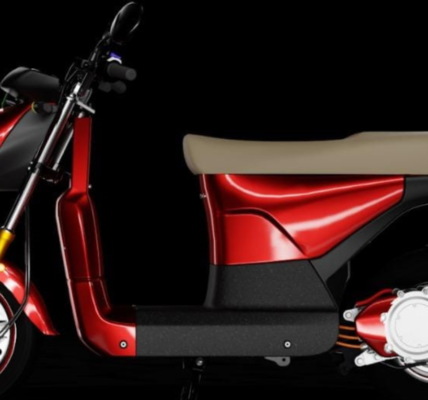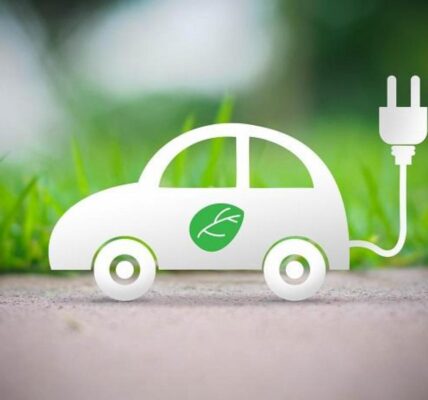Stellantis’s deal with Leapmotor of China was welcomed by some analysts as vital in its bid to survive, or even thrive, as the electric car revolution gains pace. Some though considered it a bit risky.
Stellantis, with its huge collection of mass market brands including Jeep, RAM, Peugeot, Citroen, Fiat, Vauxhall and Opel, plus luxury names like Maserati, was considered a bit late to the electric car party. But the recent embarrassing scaleback of over-ambitious plans by EV leading lights like Volkswagen, Ford, Mercedes and General Motors could make CEO Carlos Tavares look far-sighted.
Stellantis, formed in 2021 by the merger of Fiat Chrysler and France’s Peugeot-Citroen, is buying a 21% stake in EV maker Zhejiang Leapmotor Technologies in a $1.6 billion deal. The plan is for Stellantis to set up a European venture to sell and make Leapmotor’s products outside of China, starting later next year. Stellantis will hold 51%.
The deal shows how China is moving from receiving old Western technology to becoming a prime mover in the EV world. In the summer Volkswagen and Xpeng agreed a deal which would allow VW to use Chinese technology. Leapmotor needs to rapidly expand in its home market where a shakeout threatens to eliminate the laggards.
Investment researcher Jefferies liked the deal in a report entitled “Cant’ Beat Them? Join Them!”
“The deal opens up opportunities in China for Stellantis to access local technology and regain market presence without the burden of legacy issues and for Leapmotor to accelerate growth in a domestic market overdue for some consolidation. Outside China, Stellantis will assume leadership for the brand’s global development,” Jefferies said.
“The big risk is that Leapmotor isn’t actually the next BYD, as Stellantis appears to hope. The Chinese EV market has been tough this year, not least because of Tesla’s price cuts and many expect a shakeout. Leapmotor is expected to burn through $760 million this year, which is presumably one reason it is happy to take Stellantis’s money,” Wilmot said.
“Market leader BYD aside, guessing which Chinese EV startup will come out on top seems a high-risk game. It is a measure of the challenger facing global automakers that Stellantis feels the need to play it,” Wilmot said.
Everybody wins, according to Bernstein Research.
“Leapmotor gains access to Stellantis’ distribution network, and potentially its manufacturing network. Stellantis gains a stake in a Chinese (manufacturer) that it would have expected to inevitably compete with, a partner in and slice of the biggest EV market, and acquires a real-time benchmark on the tech and cost development in the Chinese market,” Bernstein said in a report.
Bernstein said Leapmotor was a startup with strong in-house research and development and more advanced technology.
Reuters Breaking Views said the deal could accelerate Tavares’ green and Chinese ambitions.
“With battery vehicles making up 5% of its last year’s sales, it’s a long way from complying with a planned EU ban on combustion-engine cars from 2035. It has also struggled to gain relevant market share in China,” Breaking Views columnist Katrina Hamlin said.
Investment bank UBS had reservations and worried that the future for big traditional manufacturers in China was poor, with market share likely to slide from about 50% in 2022, to less than 20% by 2030.
“We think an asset-light China strategy, which has been executed by Stellantis’ management over the past couple of years, remains the preferred choice to limit financial risk. Depending on the details of the potential deal, a collaboration with Leapmotor could make sense for as long as there is no large investment by Stellantis in production capacity,” UBS said in a report.
Schmidt Automotive Research says its forecast earlier this year that by 2030, Chinese EV sales in Western Europe will hit 1.2 million or 9% of the EV market is now slightly conservative. Jefferies has forecast that EV sales will hit 9.3 million in all of Europe in 2030, up from just over 1 million in 2021 and 4.8 million in 2025.
Last week, Ford Motor’s stock price dived after it reported big losses from its EV business, citing pressure from a price war sparked by Tesla. Ford also cut production of its Mustang Mach-E and scaled back its £12 billion EV investment plan.
GM said it was abandoning its target to build 100,000 EVs in the 2nd half of this year and another 400,000 in the 1st half of 2024 but didn’t say when these targets would be restored.
Mercedes conceded having to slash prices to move its EVs and said the consumer adoption rate was lower than expected. Volkswagen has had to scale production of EVs below its earlier expectations.






